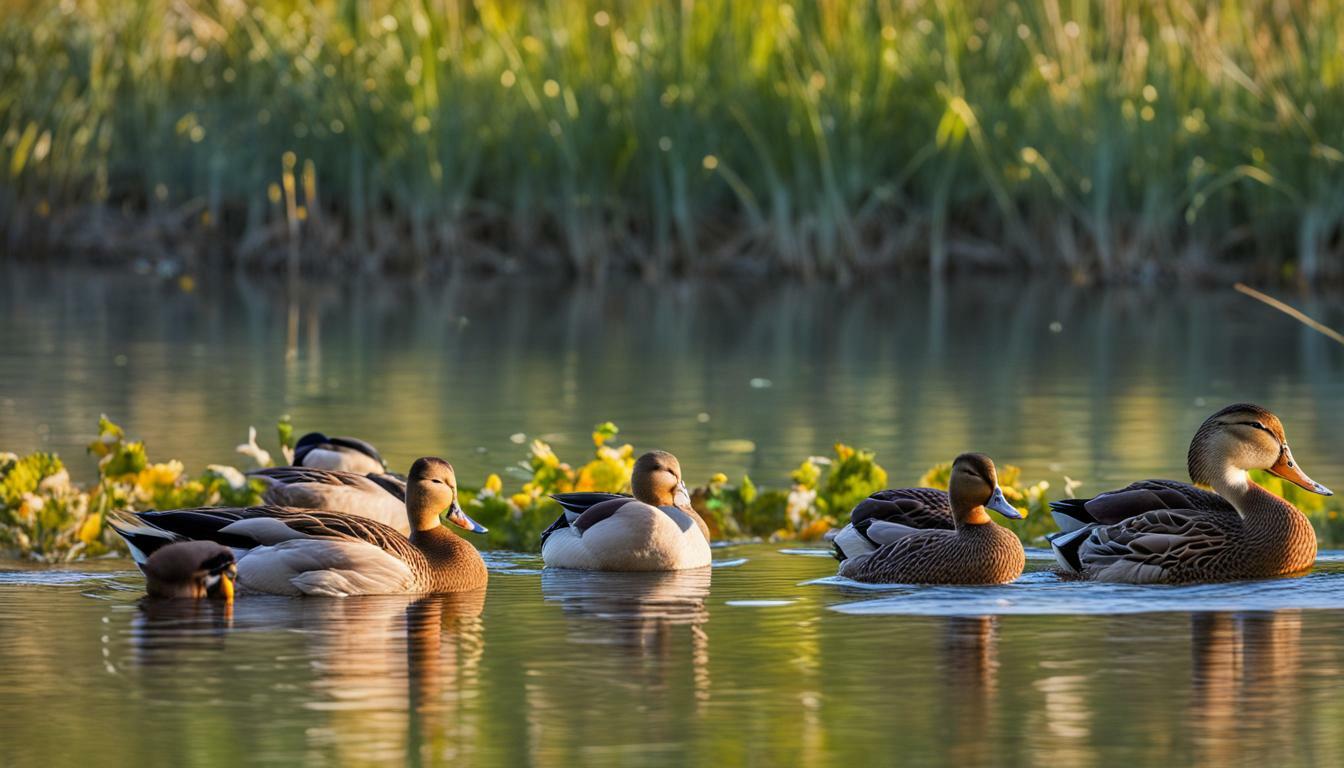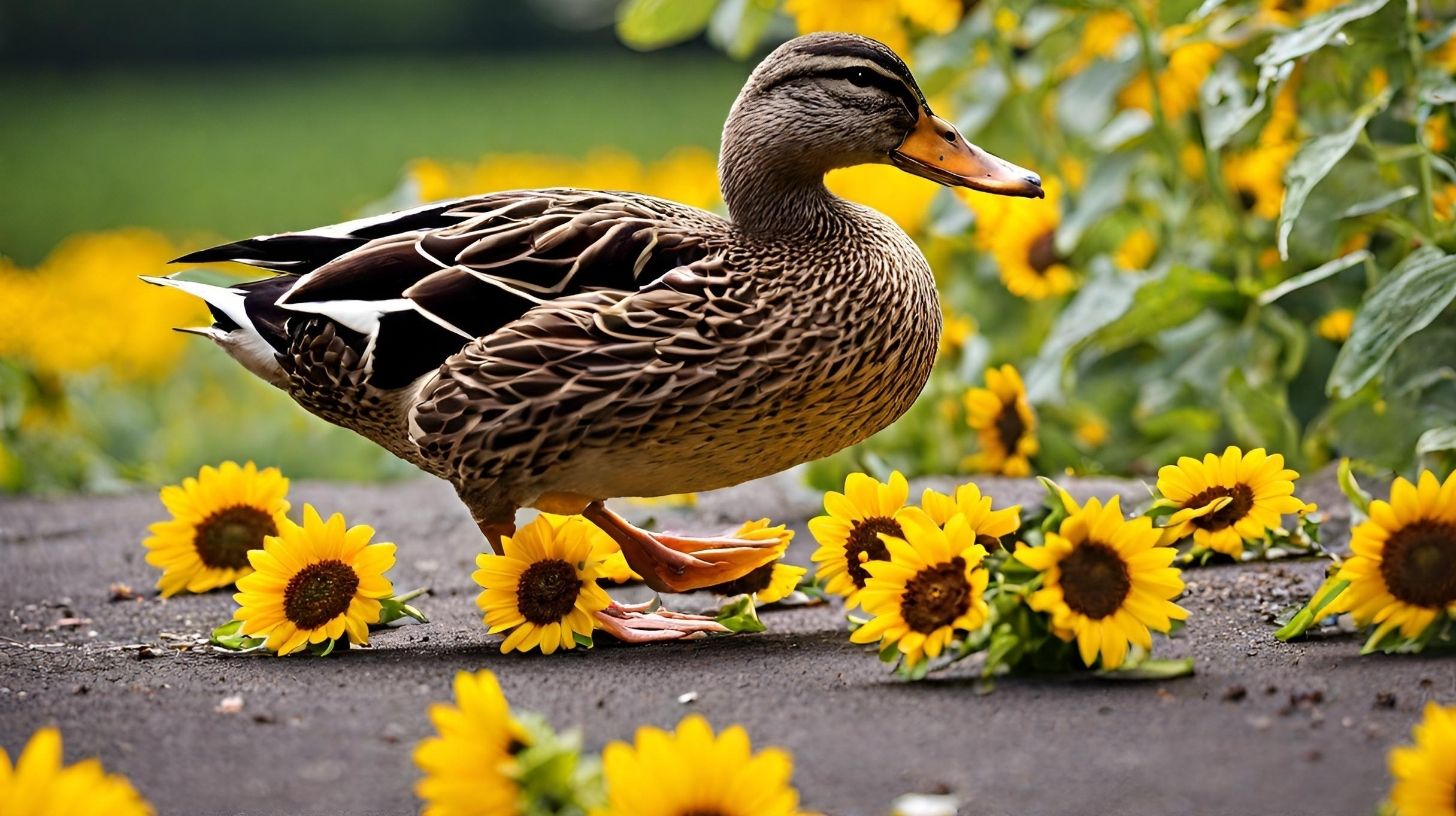Can Ducks Eat Noodles? Health and Safety Tips
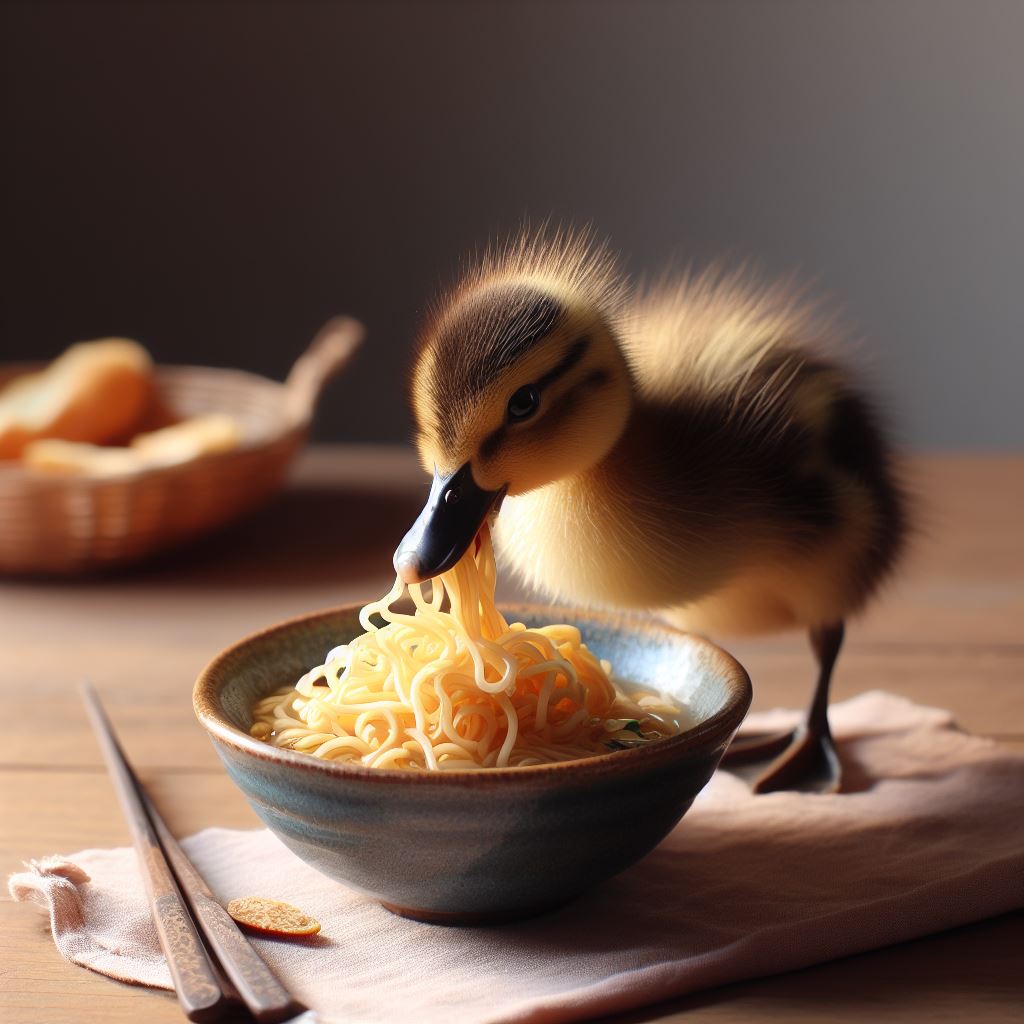
Table of content:
Can ducks eat noodles or pasta? This is a common question for duck owners and those who enjoy feeding ducks. The short answer is yes, ducks can eat some types of noodles and pasta in moderation. However, not all noodles are suitable for ducks, and overfeeding high-starch foods like pasta can cause health problems. This guide covers everything you need to know about feeding noodles and pasta to ducks.
Key Takeaways:
- Ducks can eat some noodles and pasta, but not all types are safe. Stick to whole grain or veggie noodles.
- Noodles should be fed in moderation as an occasional treat, not a staple food.
- Overfeeding starchy foods like pasta can lead to angel wing and other health issues in ducks.
- Cook noodles thoroughly before feeding to ducks. Avoid seasoning with salt or spices.
- Offer small pieces of noodles, not long strands, for duckling safety. Supervise ducklings closely.
- Pasta alternatives like cooked rice, barley or oats make healthier choices for ducks.
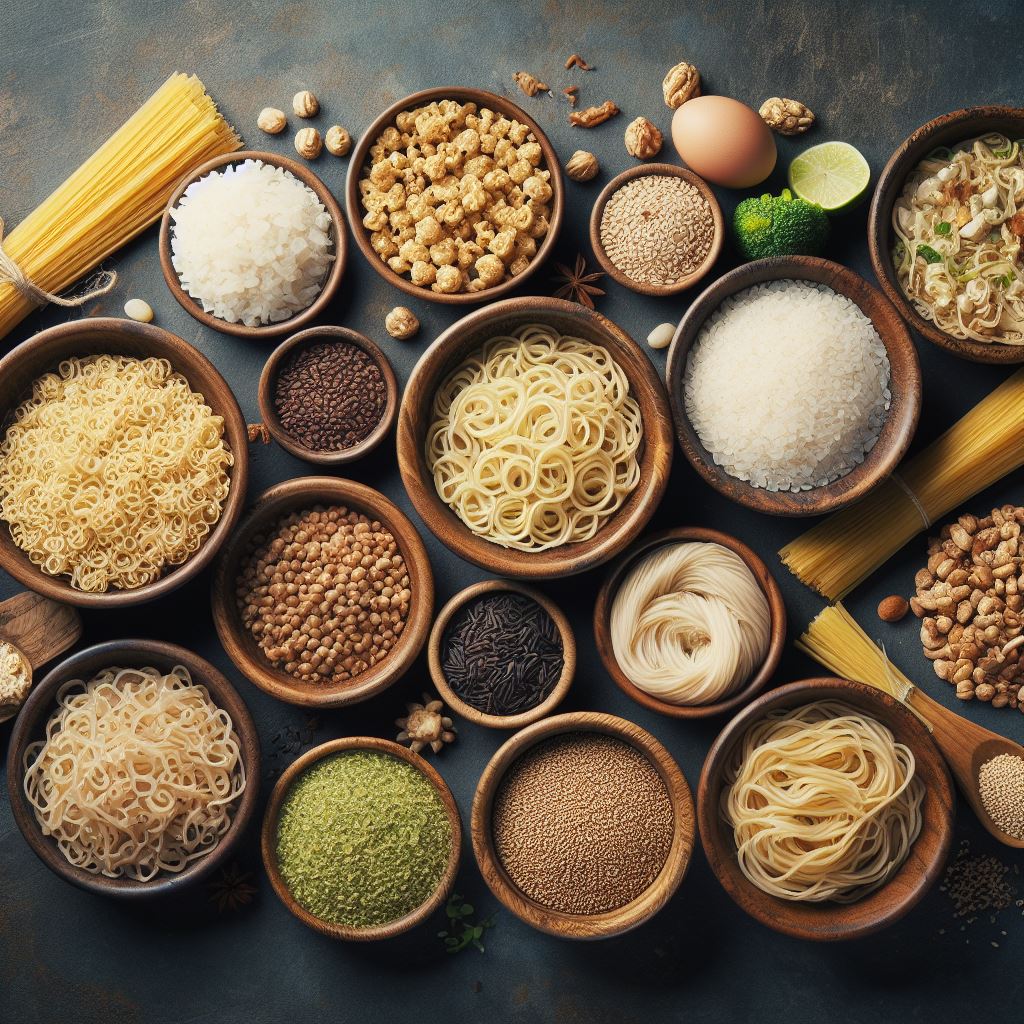 What Kinds of Noodles Can Ducks Eat?
What Kinds of Noodles Can Ducks Eat?
Not all noodles are suitable for ducks. When feeding ducks noodles or pasta, stick to whole grain or vegetable-based varieties like:
- Whole wheat noodles or pasta
- Spinach or tomato pasta
- Rice noodles or rice pasta
- Buckwheat soba noodles
- Quinoa or chickpea pasta
These provide extra nutrients like fiber, vitamins, and minerals lacking in traditional white pasta. Avoid feeding ducks regular white pasta, ramen noodles, or pasta/noodles with added salt, seasonings, oil or sauces.
Noodle Ingredients to Avoid
Steer clear of noodles containing:
- White flour – Low in nutrients. Can cause vitamin deficiencies.
- Eggs – Raw eggs may contain salmonella bacteria.
- Salt – Too much sodium is unhealthy for ducks.
- Oil – High fat content risks obesity and liver issues.
- Seasonings – Herbs, spices and garlic or onions are toxic to ducks.
Stick to plain, whole grain noodles or pasta for the healthiest choice. Check labels and ingredients carefully before feeding ducks any new foods.
Are Noodles Bad for Ducks? Moderation is Key
Noodles are not necessarily bad for ducks in moderation. However, they should be fed sparingly, not as a staple food. There are a few reasons why moderation is important:
- High in carbohydrates – Noodles and pasta are high in starch and carbohydrates with minimal nutrients. They lack the protein, vitamins and minerals ducks need.
- Risk of angel wing – Overfeeding young ducklings high-carb foods can cause a deformity called angel wing. It is irreversible and prevents flight.
- Obesity and fatty liver disease – Too many starchy foods like pasta can lead to obesity, liver damage, and other health problems in ducks. Variety and moderation are vital.
- Poor foraging behavior – Ducks have a natural foraging instinct satisfied by grazing. Feeding large amounts of pasta can curb natural behaviors.
As an occasional treat in small portions, noodles are fine for ducks. But they don’t provide a complete nutritional profile. For a balanced diet, ducks should eat primarily poultry feed, insects, greens, fruits and veggies.
How to Feed Noodles to Ducks Safely
If feeding noodles to ducks, follow these tips to keep your ducks safe and healthy:
- Cook noodles thoroughly to prevent digestive upset. Never feed raw pasta.
- Cut noodles into bite-sized pieces. Avoid feeding long noodles or strands to prevent choking hazards.
- Supervise ducklings when feeding noodles. Young ducks are more likely to choke.
- Offer just 1-2 tbsp of noodles max per duck at a time, 1-2 times per week. Do not allow ducks to fill up on pasta.
- Provide a nutritious base diet of poultry feed and fresh foods like duckweed, fruits and veggies. Noodles should only supplement the diet occasionally.
- Avoid adding salt, oil, butter, sauce or seasonings. Feed plain, cooked noodles tossed with a bit of fresh parsley or chopped veggies if desired.
- Prevent angel wing by limiting pasta for young ducklings under 6 months old.
With supervision and moderation, most healthy adult ducks can enjoy an occasional small serving of noodles without issue. But a varied, balanced diet tailored to duck nutritional needs is vital.
Healthy Pasta Alternatives for Ducks
Instead of noodles or pasta, provide ducks with healthier natural carbohydrate sources like:
- Cooked rice – Brown or wild rice offer more nutrients than white.
- Cooked oats – Rolled or steel-cut oats make a good treat.
- Barley – Cooked pearled barley can be mixed into duck feed.
- Whole grains – Try cooked farro, quinoa, millet or amaranth.
- Root veggies – Cooked sweet potato, squash, pumpkin or beets.
- Legumes – Well-cooked beans or peas offer protein too.
- Dried fruits – Raisins, berries and chopped fruit.
These whole food alternatives provide more nutritional benefits for ducks than refined white noodles or pasta. A thoughtful mix promotes better health and satisfies natural foraging behaviors. Ducks enjoy the variety too!
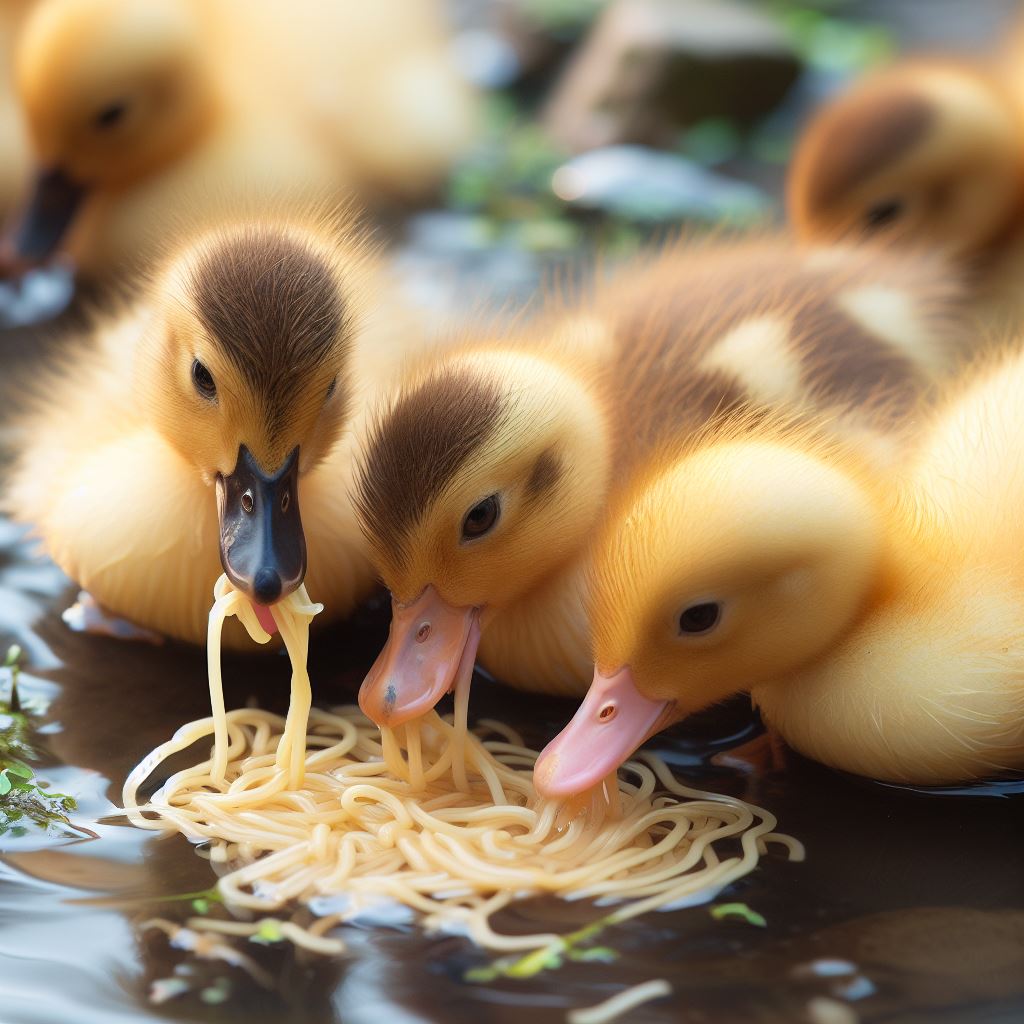 Can Ducklings Eat Noodles? Special Care Required
Can Ducklings Eat Noodles? Special Care Required
Special care should be taken when feeding noodles to ducklings under 6 months old. Young ducks are more prone to intestinal upset and have a high risk of developing angel wing deformities when overfed starches and carbs.
Here are some tips for safely feeding noodles to ducklings:
- Wait until at least 3 months old before offering small amounts of noodles.
- Cut noodles into tiny pieces to reduce choking risk.
- Feed just 1-2 very small pieces per duckling, 1-2 times weekly max.
- Closely monitor ducklings as they eat to prevent choking.
- Discontinue noodles if any signs of diarrhea, illness or prolapse develop.
- Ensure a diet with at least 20% protein from sources like insects and poultry feed.
- Offer duckweed, chopped fruits and veggies too for a balanced diet.
- Avoid pasta for any ducklings prone to rapid growth or that appear overweight.
For fast-growing Pekin or Rouen ducklings prone to angel wing, it’s best to avoid pasta altogether and find healthier treats. Ducks naturally begin eating more vegetation as they mature, reducing the starch intake needed.
Common Questions about Ducks and Noodles
Here are answers to some frequently asked questions about feeding noodles to ducks:
Can ducks digest noodles?
Most healthy ducks can digest moderate amounts of cooked noodles just fine. Their digestive system is adapted to handle a variety of foods. But overfeeding high-starch foods can lead to upset.
Do ducks like pasta?
Many ducks enjoy small amounts of cooked noodles, pasta or rice as a treat. But ducks should not fill up on these as they lack complete nutrition. Ducks have a natural preference for fresh greens, fruits, veggies and protein sources.
What human foods can ducks eat?
Ducks can eat many human foods like cooked grains, chopped veggies, berries and fruits. Feed treats in moderation. Avoid processed foods, salty/spicy items, chocolate, caffeine and raw beans/nuts which are unsafe for ducks.
Is spaghetti okay for ducks?
Cooked whole grain spaghetti is OK for ducks in moderation. Chopped into small pieces, a few bites of plain spaghetti can make a fine occasional treat. But spaghetti should never make up a substantial part of a duck’s diet.
Are noodles good for ducks?
In small amounts, noodles provide ducks with some energy from carbohydrates. But they are not an ideal food. Healthier options like cooked rice, barley or chopped fruits offer more nutrition and fiber. Noodles fed sparingly can supplement a balanced diet.
Conclusion
In moderation, most types of cooked noodles are safe for ducks to consume. Focus on whole grain or veggie-based noodles to provide some nutritional value. Avoid overfeeding pasta or noodles, as ducks require a varied diet with sufficient protein.
Cook any noodles thoroughly before feeding to ducks and supervise ducklings closely. With a little care, the occasional small serving of noodles or pasta can be a fun treat that is part of a balanced diet for ducks.
Welcome. I’m Adreena Shanum, the proud owner of this website, and I am incredibly passionate about animals, especially poultry. I founded adreenapets.com as a labor of love, stemming from my desire to share my knowledge and experiences with poultry enthusiasts worldwide.



